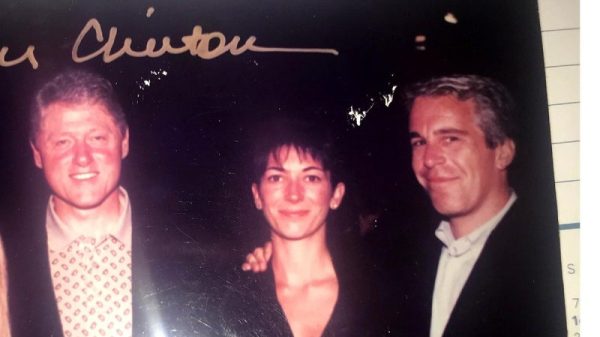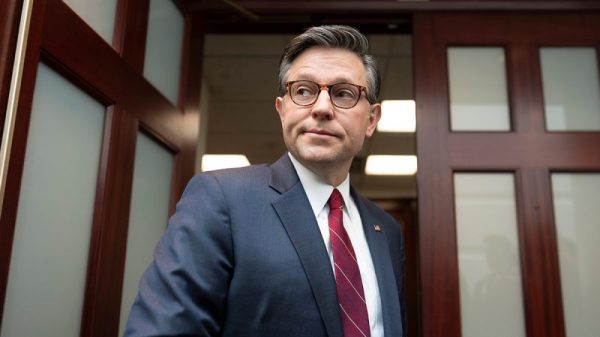Mel Sembler, a shopping mall magnate and prodigious Republican fundraiser whose donations led to ambassadorships under two Bush administrations and who started a controversial drug treatment program for adolescents, died Oct. 31 in St. Petersburg, Fla. He was 93.
The cause was lung cancer, his family said.
Mr. Sembler was chairman of the Sembler Co., which developed more than 350 retail projects, most of them shopping centers, across the southeastern United States.
He helped to popularize the strip mall, starting out with a single row of stores along a highway in Dyersburg, Tenn., in the early 1960s. Mr. Sembler later became a spokesman for the shopping mall industry, working with the International Council of Shopping Centers for 25 years and serving as its president from 1986 to 1987.
His prominence as a developer and the fortune he made after moving to Florida in 1968 and building shopping malls around the state helped smooth his path into the world of political fundraising. He became a high-dollar donor and fundraiser for Republican campaigns and causes, known for his ability to bring in millions of dollars in contributions.
Mr. Sembler’s long association with the family of George H.W. Bush began in 1979 when Bush ran for president. Bush — a former Texas congressman, ambassador to the United Nations, chairman of the Republican National Committee, envoy to China and CIA director — leased office space at one of Mr. Sembler’s shopping centers. The developer hosted fundraisers for the candidate, who ultimately lost the Republican nomination to former California governor Ronald Reagan but who served two terms as Reagan’s vice president.
In 1988, Mr. Sembler donated more than $100,000 to Bush’s presidential campaign and served on his national steering and finance committees and as finance co-chairman for Florida. After winning the White House, Bush rewarded Mr. Sembler by tapping him as the new U.S. ambassador to Australia. The choice was lampooned in a 1989 “Doonesbury” comic strip, which portrayed an unnamed black-tie bidder landing the ambassadorship for $110,000 at an auction.
“You really need a good sense of humor when you get into politics,” Mr. Sembler told the St. Petersburg Times (now the Tampa Bay Times) in response to the strip.
Years later, while serving as finance chairman for the Republican National Committee during the successful presidential campaign of Bush’s son, George W. Bush, Mr. Sembler organized a glitzy dinner for high-rolling donors that brought in $11.3 million for the campaign in one night.
All told, Mr. Sembler helped collect more than $220 million for George W. Bush and other GOP candidates during that 2000 election campaign. After taking office in 2001, George W. Bush picked Mr. Sembler to be ambassador to Italy, a post he held until 2005.
Melvin Floyd Sembler was born in St. Joseph, Mo., on May 10, 1930. His father was a businessman, and his mother was a homemaker.
In 1952, he received a bachelor’s degree from Northwestern University, where he met fellow student Betty Schlesinger, who became his wife the year after his graduation. She died in 2022. Survivors include three sons, Steven, Brent and Greg Sembler of the Tampa Bay area; a sister; 12 grandchildren; and eight great-grandchildren.
In 1976, Mr. Sembler and his wife co-founded Straight Inc., a drug-treatment program for juveniles that practiced a tough-love approach to curbing addiction. They were reportedly spurred to start the program after one of their sons was caught smoking marijuana.
In the early 1980s, the program attracted the attention of then-first lady Nancy Reagan, who launched her own anti-drug effort, dubbed “Just Say No,” in 1984 to counter peer pressure among youths to try illegal drugs. But after opening dozens of centers in 18 states and treating thousands of young people, Straight Inc. ran into legal problems amid complaints of abusive treatment.
The company ended up having to pay millions of dollars to settle lawsuits. One former resident who said he was held against his will in a Straight Inc. program in Virginia was awarded $220,000. A woman in Florida who said she suffered abuse during an 18-month stay at a facility in Florida starting when she was 17 won a settlement of $721,000.
Straight Inc. closed in 1993, but the Semblers continued their anti-drug work in the years that followed, opposing states’ measures to legalize marijuana. In 1995, they founded the Drug Free America Foundation as a nonprofit advocacy organization, without a drug rehabilitation component.
Mr. Sembler served on the boards of banks as well as the American Enterprise Institute, George Bush Presidential Library Foundation and the Republican Jewish Coalition.
In the 2016 primaries, he initially backed former Florida Republican governor Jeb Bush (the son and brother, respectively, of the earlier Bush presidents), then supported Sen. Marco Rubio (R-Fla.) after Bush dropped out of the race.
When Rubio also quit the race, Mr. Sembler seemed reluctant to support Donald Trump, the eventual GOP presidential nominee, the Tampa Bay Times reported. He told the paper he would “have to give serious thought” to voting for Hillary Clinton.
“I don’t understand our country anymore,” the Times quoted him as saying. But, like other prominent GOP donors, he ultimately came around to Trump, even serving as vice chairman of his inaugural committee.
“I’m a supporter of the party,” he said, according to the Times, “and he’s the leader of my party.”
Mel Sembler, a shopping mall magnate and prodigious Republican fundraiser whose donations led to ambassadorships under two Bush administrations and who started a controversial drug treatment program for adolescents, died Oct. 31 in St. Petersburg, Fla. He was 93.
The cause was lung cancer, his family said.
Mr. Sembler was chairman of the Sembler Co., which developed more than 350 retail projects, most of them shopping centers, across the southeastern United States.
He helped to popularize the strip mall, starting out with a single row of stores along a highway in Dyersburg, Tenn., in the early 1960s. Mr. Sembler later became a spokesman for the shopping mall industry, working with the International Council of Shopping Centers for 25 years and serving as its president from 1986 to 1987.
His prominence as a developer and the fortune he made after moving to Florida in 1968 and building shopping malls around the state helped smooth his path into the world of political fundraising. He became a high-dollar donor and fundraiser for Republican campaigns and causes, known for his ability to bring in millions of dollars in contributions.
Mr. Sembler’s long association with the family of George H.W. Bush began in 1979 when Bush ran for president. Bush — a former Texas congressman, ambassador to the United Nations, chairman of the Republican National Committee, envoy to China and CIA director — leased office space at one of Mr. Sembler’s shopping centers. The developer hosted fundraisers for the candidate, who ultimately lost the Republican nomination to former California governor Ronald Reagan but who served two terms as Reagan’s vice president.
In 1988, Mr. Sembler donated more than $100,000 to Bush’s presidential campaign and served on his national steering and finance committees and as finance co-chairman for Florida. After winning the White House, Bush rewarded Mr. Sembler by tapping him as the new U.S. ambassador to Australia. The choice was lampooned in a 1989 “Doonesbury” comic strip, which portrayed an unnamed black-tie bidder landing the ambassadorship for $110,000 at an auction.
“You really need a good sense of humor when you get into politics,” Mr. Sembler told the St. Petersburg Times (now the Tampa Bay Times) in response to the strip.
Years later, while serving as finance chairman for the Republican National Committee during the successful presidential campaign of Bush’s son, George W. Bush, Mr. Sembler organized a glitzy dinner for high-rolling donors that brought in $11.3 million for the campaign in one night.
All told, Mr. Sembler helped collect more than $220 million for George W. Bush and other GOP candidates during that 2000 election campaign. After taking office in 2001, George W. Bush picked Mr. Sembler to be ambassador to Italy, a post he held until 2005.
Melvin Floyd Sembler was born in St. Joseph, Mo., on May 10, 1930. His father was a businessman, and his mother was a homemaker.
In 1952, he received a bachelor’s degree from Northwestern University, where he met fellow student Betty Schlesinger, who became his wife the year after his graduation. She died in 2022. Survivors include three sons, Steven, Brent and Greg Sembler of the Tampa Bay area; a sister; 12 grandchildren; and eight great-grandchildren.
In 1976, Mr. Sembler and his wife co-founded Straight Inc., a drug-treatment program for juveniles that practiced a tough-love approach to curbing addiction. They were reportedly spurred to start the program after one of their sons was caught smoking marijuana.
In the early 1980s, the program attracted the attention of then-first lady Nancy Reagan, who launched her own anti-drug effort, dubbed “Just Say No,” in 1984 to counter peer pressure among youths to try illegal drugs. But after opening dozens of centers in 18 states and treating thousands of young people, Straight Inc. ran into legal problems amid complaints of abusive treatment.
The company ended up having to pay millions of dollars to settle lawsuits. One former resident who said he was held against his will in a Straight Inc. program in Virginia was awarded $220,000. A woman in Florida who said she suffered abuse during an 18-month stay at a facility in Florida starting when she was 17 won a settlement of $721,000.
Straight Inc. closed in 1993, but the Semblers continued their anti-drug work in the years that followed, opposing states’ measures to legalize marijuana. In 1995, they founded the Drug Free America Foundation as a nonprofit advocacy organization, without a drug rehabilitation component.
Mr. Sembler served on the boards of banks as well as the American Enterprise Institute, George Bush Presidential Library Foundation and the Republican Jewish Coalition.
In the 2016 primaries, he initially backed former Florida Republican governor Jeb Bush (the son and brother, respectively, of the earlier Bush presidents), then supported Sen. Marco Rubio (R-Fla.) after Bush dropped out of the race.
When Rubio also quit the race, Mr. Sembler seemed reluctant to support Donald Trump, the eventual GOP presidential nominee, the Tampa Bay Times reported. He told the paper he would “have to give serious thought” to voting for Hillary Clinton.
“I don’t understand our country anymore,” the Times quoted him as saying. But, like other prominent GOP donors, he ultimately came around to Trump, even serving as vice chairman of his inaugural committee.
“I’m a supporter of the party,” he said, according to the Times, “and he’s the leader of my party.”





















